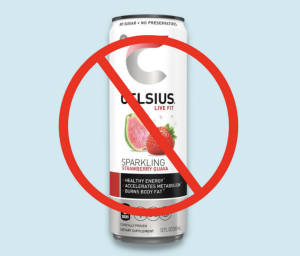Phish Is Out There
November 17, 2022
In the past months, there have been several emails that have been sent out to the students of GC about phishing. Most students tend to ignore these emails; however, most have begun to recognize the dangers of these phishers due to the most recent emails sent out.
“Awareness is the biggest thing,” said Susan Kerr, GC Chief Information Officer.
In September, a student had her GC email account hacked and the hacker sent approximately 10,000 phishing emails to other students. Several students did click on the links provided in these emails, and some provided their information. As a result, GC Information Security had to force a password reset on all accounts that may have provided any information to the hackers or those who received the email.
At the beginning of October, another email account was compromised and was used to send phishing emails that held links and instructions to copy and paste links. GC Information Security sent out yet another email regarding students needing to do a password change immediately.
Kerr said that the most common way for someone to fall victim is a message that has “urgent” in the subject line or within the email.
Statistics show that younger people are more susceptible to hackers because many have not learned how to recognize those phishing attempts. Most of the 1 in 3 people that are victimized are younger.
GC’s information security receives reports of phishing emails and suspicious activity on a daily basis. It is reported that there is a hacker attack every 39 seconds worldwide, which means it is very common, especially on college campuses.
Many students have claimed that they often do not see emails from the school.
“It’s common for me to miss emails from my GC account,” said junior Terrence Phillip. “It’s because of Duo 2-Factor authentication.”
“I never received any harmful phishing emails that I know of, but I did receive the warnings about them,” said sophomore marketing major, Tucker Sutton.
This is unfortunate since 2-factor authentication is a great way to avoid being hacked. Susan Kerr said that many apps or platforms that offer 2-factor authentication, should be taken advantage of for safety purposes.
A good number of students have expressed that any emails they receive that do not directly pertain to classes, they view as spam and delete them. This turned out to be beneficial for those students because they didn’t have to worry about being hacked.
“If you have a question about something, before you act on it, contact our help desk. Let us help,” said Kerr.
The key to avoiding being a victim of hackers, is to check the direct company or person’s email address and/or phone number. A good way to validate the potential phishing activity is to go directly to the source, such as calling a company’s online number, or a person.
Many students seem to be aware of the issues that GC addresses, even if they are not directly involved. Most students feel relieved that GC takes such actions in protecting their students.
“I am glad that GC is knowledgeable and forthright about our data when it is potentially at risk,” said Phillip.
The best way to avoid being a victim of hackers and phishing emails is to be aware, ask questions, have security, and upgrade all software when it is needed.
“Be suspicious,” said Kerr.






